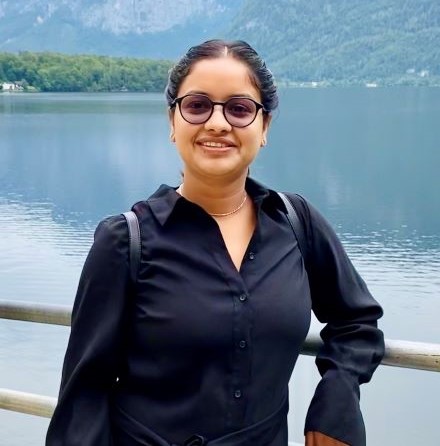You are here :
- EUTOPIA website
- Home
- Research & Innovation
- Fellowship
- SIF - Post-Doctoral Fellowships
SIF 2nd Cohort Fellows - Pratiksha Srivastava, University of Gothenburg

Curriculum Vitae
- Education
12/08/2009 – 04/07/2014, B.Tech - M.Tech (Integrated) in Biotechnology, JVWU (India)
- Experience
I worked at CSIR-Institute of Minerals & Materials Technology (India) on the role of Junior research fellow, and women scientist intern from the year 2014 to 2017 and my project was mainly based on “Extracellular electron transfer between microbes-conductive material interaction for advance biological process for cleaner production”. In the year 2017, I moved to Australia for Ph.D. where I worked part-time as a research assistant and lab demonstrator from the year 2018 to 2020. I completed Ph.D. in the year 2021 and the topic of my thesis was
“Development of bioelectrochemical system based constructed wetland technology for efficient wastewater treatment and resource recovery”. After completing Ph.D. I worked as a postdoctoral researcher at the King Juan Carlos University (Spain) from October 2021 to March 2022, on the topic “Extraction of Polyhydroxyalkanoate from purple phototrophic bacteria using sustainable methods for large scale applications”. Afterwards, I joined IMDEA, Energy as a postdoctoral researcher and I have been working on the topic “Microbial electrolysis cells for green hydrogen production”.
- Publications/Research achievements
Research Project:
Discovering the Geo-conductor Based Anaerobic Ammonium Oxidation and Development of Cleaner and Sustainable Treatment Process
To minimize climate change impact, major focus is given to carbon-based pollutants and carbon neutrality. However, nitrogen pollution is often overlooked which have much higher impact. Among other nitrogen pollutants, ammonium is a critical pollutant of aquatic environment as its oxidation is high energy demanding leading to its accumulation. Conversion of ammonium to nitrogen gas are challenging as they require aerobic and anaerobic conditions, specific microbes (nitrifier, denitrifiers or anammox bacteria), specific chemical such as electron acceptors/donors (e.g., oxygen, nitrite, or carbonaceous donor). Besides, canonical nitrification-denitrification generates GHGs such as N2O as well as CO2.
This research will provide a fundamental new understanding of nitrogen cycle, revolutionary solutions to minimize costs of removing nitrogenous pollutants and reduction strategies of greenhouse gases (GHGs) emissions from natural environment. This research proposes to investigate nature-based geo-conductors for anaerobic AO. This research will contribute new knowledge and cost-effective solutions for abatement of ammonium in nature with less to no associated GHG emissions.
The primary host of this project is Department of Marine Sciences, Gothenburg University, Sweden. The co-host is University of Warwick, United Kingdom. An extension of a collaboration and external secondment plan has been reached out to University of Southern Denmark, Denmark, for the successful implementation of the project.


